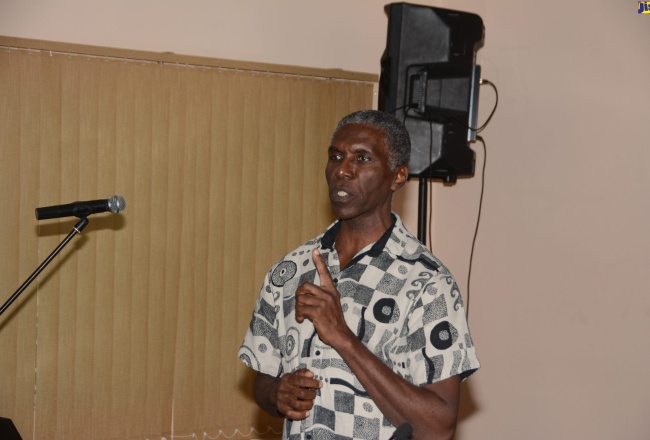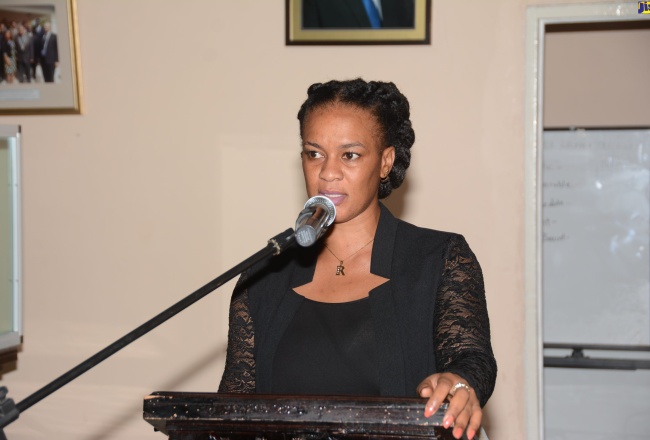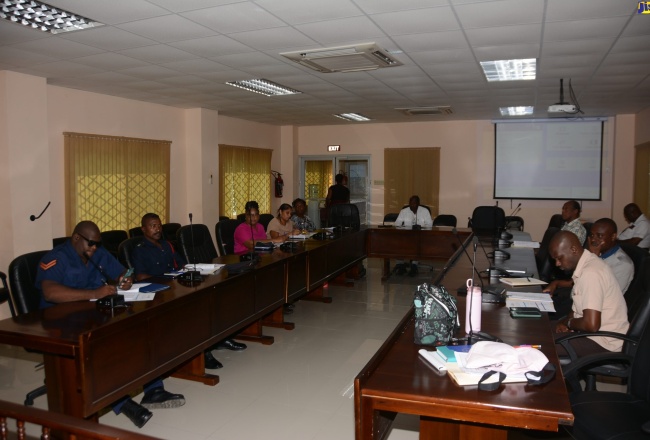First Responders Urged to Support Persons Grappling with Psychological Disorders
By: , August 29, 2023The Full Story
First responders and front-line workers are encouraged to offer support to persons grappling with psychological disorders in times of major hazards or disasters.
The call came from Regional Coordinator for the Western Division of the Office of Disaster Preparedness and Emergency Management (ODPEM), Roland Haye, at an Emergency Operations Centre (EOC) workshop held at the St. Elizabeth Municipal Corporation in Black River on August 28.
Mr. Haye pointed out that psychological disorders can go unnoticed in the wake of catastrophes.
In fact, he noted that the afflictions people develop mentally can be just as devastating as the physical destruction of property and other resources.
“We don’t make a lot of fuss about psychological disorders. Sometimes you can see the immediate impact [of a disaster] but most times, the impact is slow and long-term,” Mr. Haye indicated.
“Imagine, you spend all your working life building your dream house and you get an impact from some event, and it’s gone. You are going to be at a loss. Eventually, you may be so affected psychologically that you might have to end up in Bellevue,” he added.
Mr. Haye urged Jamaicans to be attentive to those around them during the aftermath of disasters and to look for signs of distress.
He acknowledged the pivotal role played by organisations such as the Jamaica Red Cross in offering psychosocial support.
“They’re not psychologists but they’re trained to initially be able to recognise and to give some support,” Mr. Haye said.
He pointed out that the Ministry of Health & Wellness maintains a dedicated mental health department that continues to showcase a commitment to addressing the often-unseen scars of disasters.
Mr. Haye encouraged communities to extend this commitment by considering the psychological well-being of survivors and responders alike during disaster responses.
“It’s not just about food and medication; we need to also focus on the psychological state of victims. Not just victims, but responders too,” he added.
Parish Disaster Coordinator (Acting) for St. Elizabeth, Rasha Lloyd, said that at the end of the workshop, participants will be able to organise simulated exercises and set up a basic functioning Emergency Operations Centre.
“Also, they will be able to determine the staff required for operating the Parish Emergency Operations Centre (PEOC), group and assign tasks within the PEOC, log route and action messages coming into the operations room during a simulated emergency, and to prepare a situation report,” she outlined.
The two-day workshop, which will end today (August 29), has participants from supporting government and charitable entities, such as the Social Development Commission (SDC), Jamaica Constabulary Force (JCF), Jamaica Fire Brigade, St. Elizabeth Health Department, St. Elizabeth Municipal Corporation, Jamaica Red Cross, and more.
The workshop aims to provide participants with the skills and knowledge necessary to facilitate seamless healthcare mobility, service delivery, the preservation of social infrastructure, and the reduction of disruptions for residents during adverse events.




